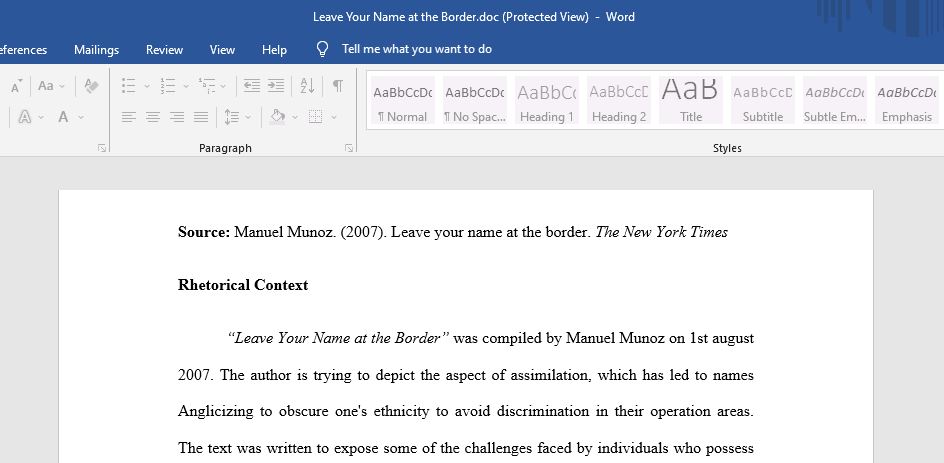“Leaving Your Name at the Border” by Manuel Muñoz.
DIRECTIONS:
This week we are starting Project 2 on Cultural Borders. As we have talked about a little bit now, language can create a cultural border. The way we perceive and pronounce names can contribute to that. We are starting this unit by reading “Leaving Your Name at the Border” by Manuel Muñoz.
STEP 1:
Carefully read through “Leaving Your Name at the Border” by Manuel Muñoz. Read it slowly! Read it twice!
STEP 3:
Answer the following questions about the reading. These answers can be submitted as a text submission or added to the end of your annotation worksheet.
- What does it mean to “anglicize” a word, a name?
- Why, according to the writer, do many people in California’s Central Valley, “regardless of the speaker’s background,” Anglicize the pronunciation of Mexican names? Consider his explanations regarding the demographics of the small towns in the region and the prevailing perceptions of Spanish.
- Munoz claims that the Anglicization of his stepfather’s name “ties into something bigger than learning English” (par. 14). Explain what he means by “something bigger.” How does this relate to the idea of cultural borders within the same physical space/border?
- In paragraph 8, Munoz mentions the stigma associated with speaking Spanish, saying that “Spanish was and still is viewed with suspicion.” Do you agree that there is stigma with speaking Spanish in the United States? Why or why not? How is that a reflection of Spanish culture within the physical borders of the U.S?
- In paragraph 9, what does Munoz realize about what it means to be “white: and “American.” What is his realization? Why is it significant?
Answer preview:

word limit:875
